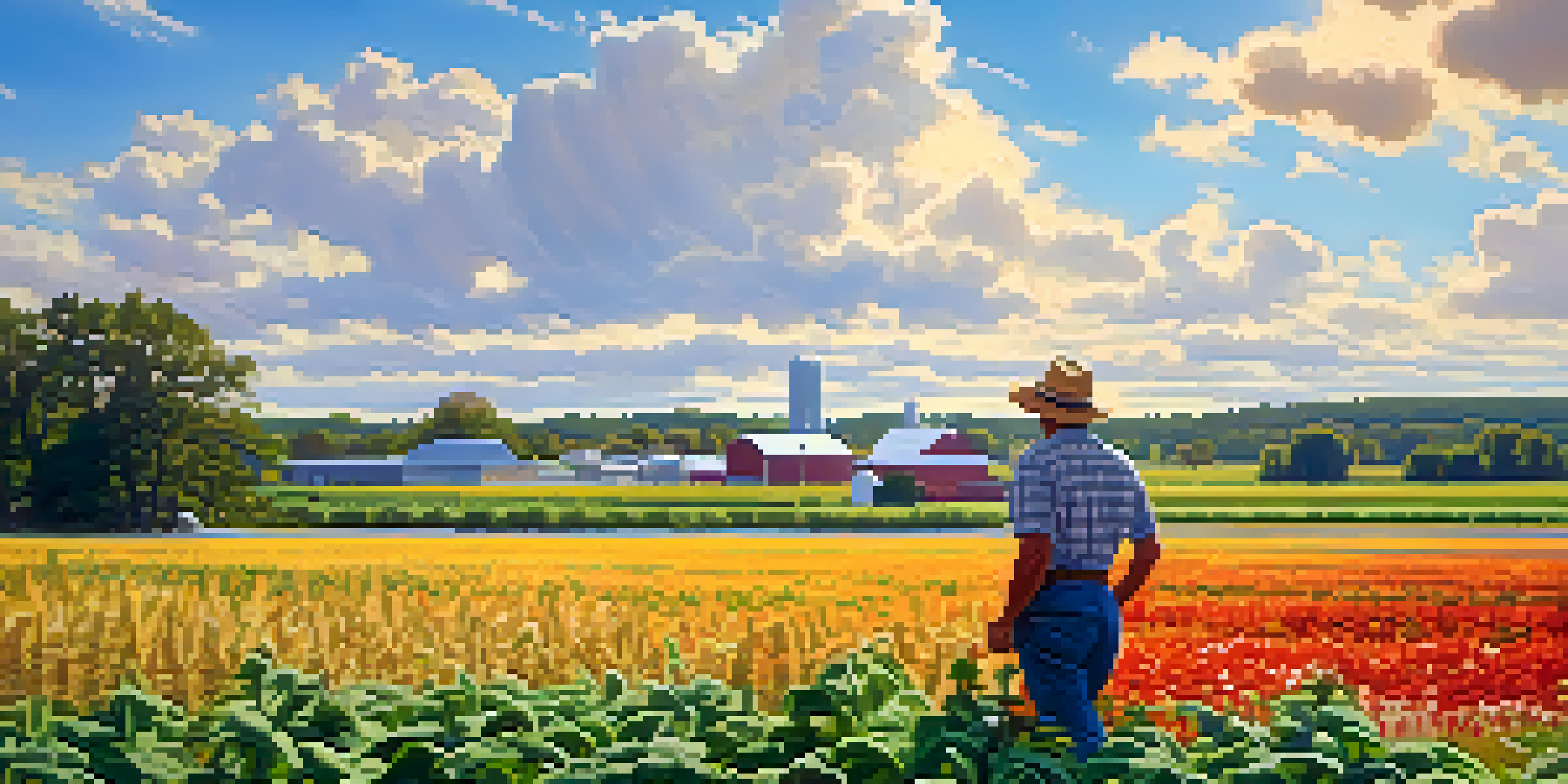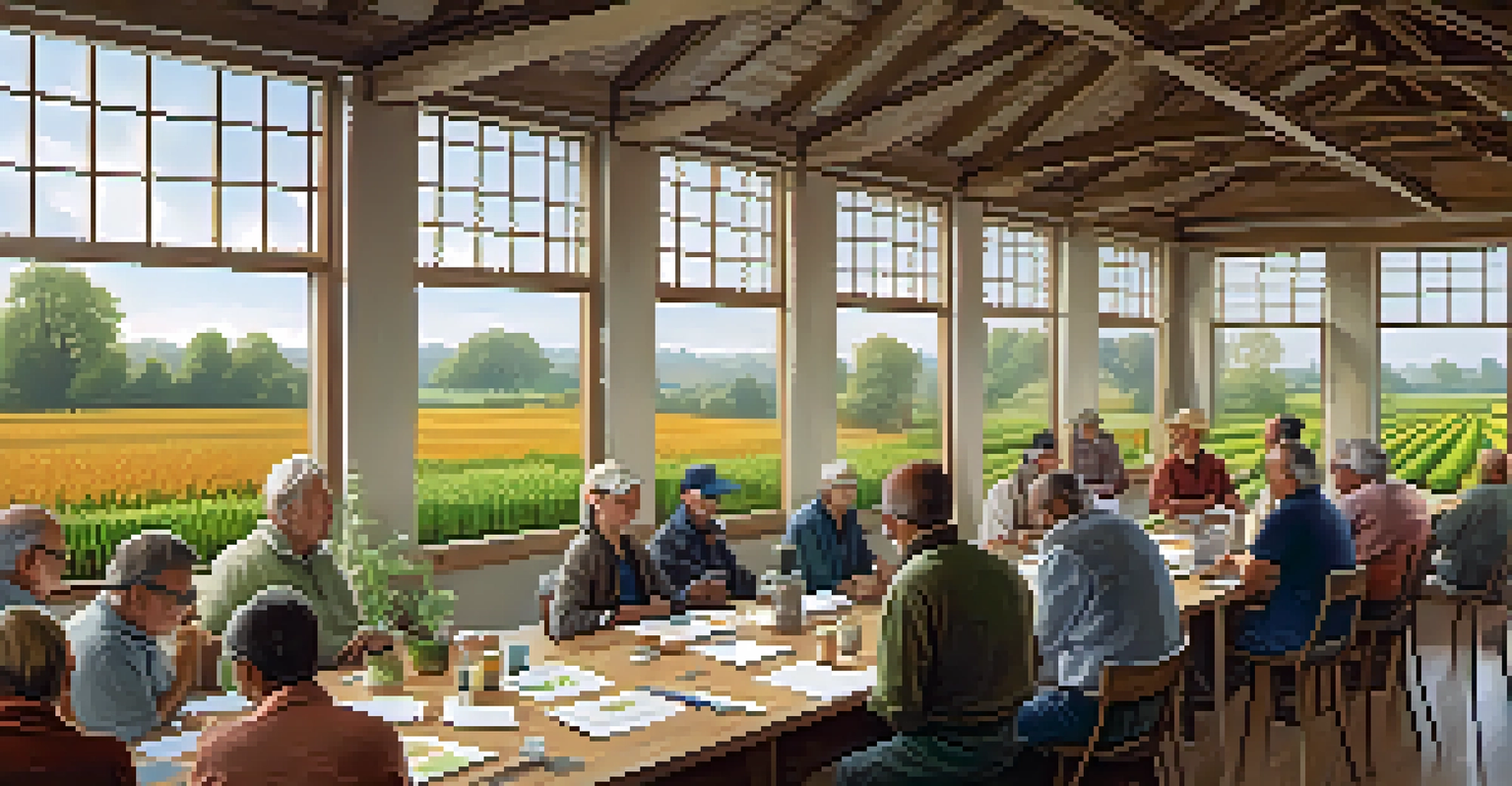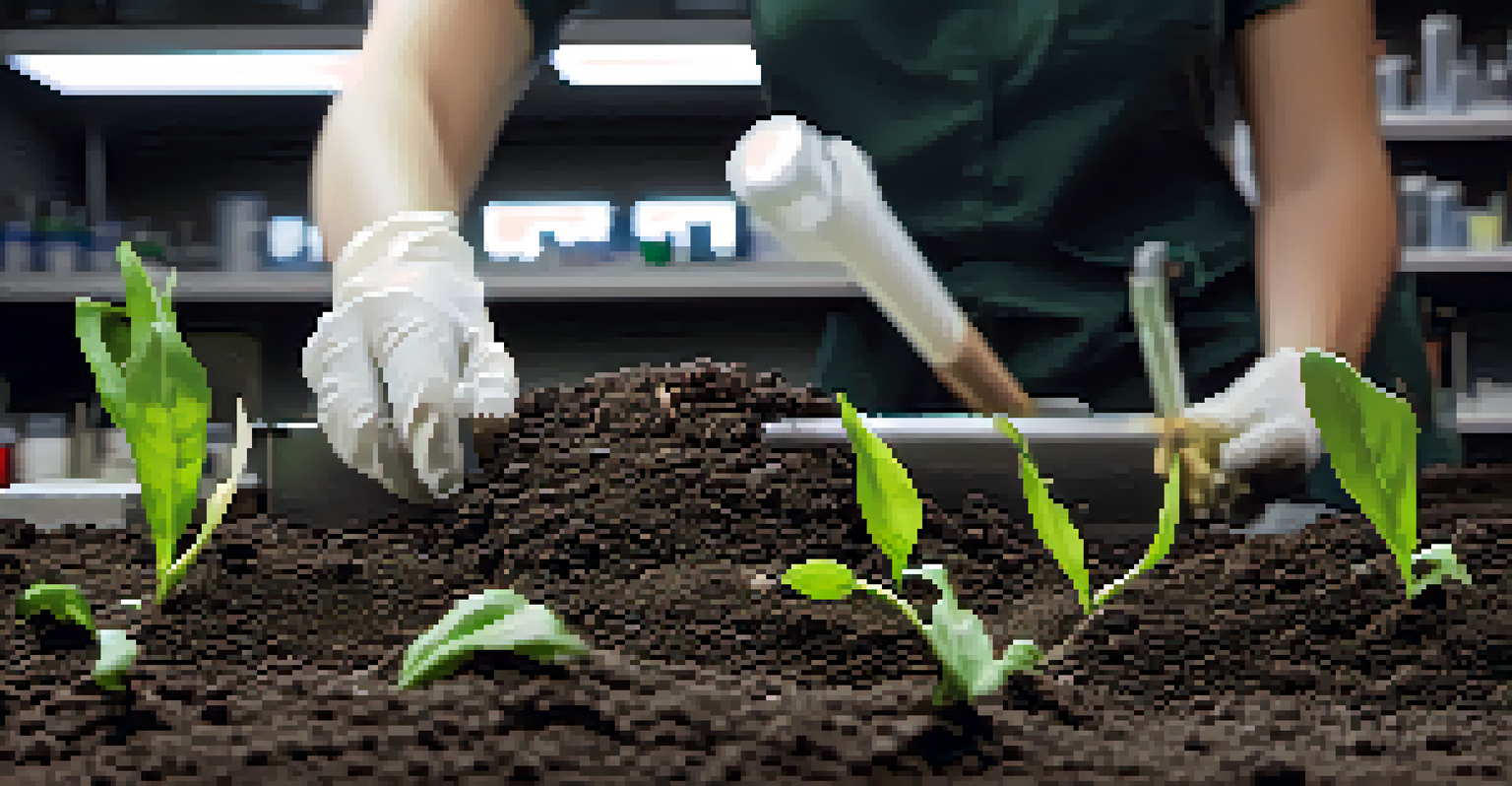Research Programs at MSU: Transforming Michigan Agriculture

The Role of MSU in Michigan's Agricultural Landscape
Michigan State University (MSU) has long been a cornerstone in the state's agriculture sector. With a commitment to innovation and sustainability, MSU engages in various research programs that empower local farmers and enhance food production. This university not only educates future agricultural leaders but also tackles pressing issues like climate change and pest management.
Agriculture is our wisest pursuit, because it will in the end contribute most to real wealth, good morals, and happiness.
The university's land-grant mission emphasizes practical education and research that benefits the community. By collaborating with farmers, agricultural businesses, and policymakers, MSU ensures that its research is grounded in real-world needs. This approach fosters strong connections that help advance the agricultural industry in Michigan.
Moreover, MSU's research initiatives focus on diverse areas such as crop science, soil health, and sustainable practices. This broad scope allows them to address challenges from multiple angles, ultimately leading to more resilient agricultural systems. As a result, MSU plays a pivotal role in shaping the future of Michigan agriculture.
Innovative Research Programs at MSU
MSU is home to numerous innovative research programs aimed at improving agricultural practices. One such program is the Michigan Agricultural Experiment Station, which conducts cutting-edge research on various crops and farming methods. Through experimentation and data analysis, they provide insights that help farmers increase yields and optimize resource use.

Another notable initiative is the Integrated Pest Management program, which focuses on sustainable pest control strategies. By combining biological, cultural, and chemical methods, this program helps farmers manage pests effectively while minimizing environmental impact. This holistic approach is crucial for maintaining healthy ecosystems and ensuring food safety.
MSU Drives Innovation in Agriculture
Michigan State University leads the way in agricultural research, focusing on sustainable practices and advanced technologies to support local farmers.
Additionally, MSU's focus on precision agriculture exemplifies its commitment to leveraging technology in farming. By utilizing tools like drones and GPS, researchers can analyze field conditions more accurately, leading to more informed farming decisions. This integration of technology and agriculture not only boosts productivity but also promotes sustainability.
Collaborative Efforts with Local Farmers
Collaboration is at the heart of MSU's research programs, particularly when it comes to working with local farmers. Through partnerships and outreach initiatives, MSU researchers engage directly with the agricultural community to understand their challenges. This hands-on approach ensures that the research conducted is practical and relevant to those it aims to help.
The future of agriculture is not about growing more food; it’s about growing food more sustainably.
For instance, the MSU Extension service provides educational resources and workshops for farmers. These programs cover a range of topics, including best practices for crop management and innovative farming technologies. By empowering farmers with knowledge, MSU strengthens the agricultural landscape across Michigan.
Furthermore, MSU often involves farmers in the research process itself, creating a feedback loop that enhances outcomes. This participatory model not only boosts farmer engagement but also leads to more effective solutions tailored to specific local needs. Together, MSU and Michigan farmers are forging a path toward sustainable agricultural development.
Sustainability Initiatives in Agricultural Research
Sustainability is a guiding principle in MSU's agricultural research programs. The university recognizes that addressing environmental concerns is critical to the future of farming. As such, many of its initiatives focus on developing practices that protect natural resources while ensuring food security.
For example, research on cover cropping and crop rotation promotes soil health and reduces erosion. These practices not only enhance productivity but also contribute to biodiversity and ecosystem resilience. By prioritizing sustainability, MSU helps farmers adopt methods that are both economically viable and environmentally friendly.
Collaboration Enhances Farm Outcomes
Through partnerships with farmers, MSU ensures research is relevant and tailored to real-world agricultural challenges.
Moreover, MSU's commitment to climate-smart agriculture is evident in its research on adapting to changing weather patterns. By studying how various crops respond to climate variability, researchers can recommend strategies that help farmers thrive in an uncertain future. This proactive approach is essential for building a sustainable agricultural system in Michigan.
Addressing Challenges in Michigan Agriculture
Michigan's agriculture faces numerous challenges, from fluctuating market demands to climate change impacts. MSU's research programs are designed to address these issues head-on by providing insights and solutions. The university's experts analyze data trends and develop strategies that help farmers navigate these complexities.
One significant challenge is the increasing threat of invasive species, which can disrupt local ecosystems and agricultural productivity. MSU researchers are actively studying these threats, working to identify effective control measures that can be implemented on farms. By staying ahead of these challenges, MSU supports the resilience of Michigan's agricultural sector.
Additionally, MSU focuses on economic challenges by researching market trends and developing resources for farmers. This includes financial planning tools and support for diversifying crops, which can help mitigate risks. By offering these resources, MSU equips farmers with the knowledge needed to succeed in a competitive landscape.
Educational Outreach and Community Engagement
MSU's commitment to education extends beyond the classroom; it actively engages with the agricultural community through outreach programs. These initiatives aim to disseminate research findings and promote best practices among farmers. By bridging the gap between research and practice, MSU enhances the overall health of Michigan agriculture.
Workshops, field days, and seminars are just a few examples of the outreach efforts organized by MSU. These events provide farmers with hands-on learning experiences and the opportunity to connect with experts in the field. Such interactions foster a sense of community and collaboration among Michigan's agricultural stakeholders.
Sustainability is a Key Focus
MSU prioritizes sustainable agricultural practices that protect natural resources while ensuring food security for future generations.
Moreover, MSU leverages online platforms to reach a wider audience, ensuring that valuable information is accessible to all. By embracing technology, the university can share research findings and educational materials with farmers across the state. This inclusive approach helps cultivate a knowledgeable agricultural community, poised for success.
Future Directions for MSU's Agricultural Research
As we look to the future, MSU's agricultural research programs are poised to evolve and adapt to emerging challenges. With advancements in technology and a growing emphasis on sustainability, the university's focus will likely remain on innovative solutions. This commitment to progress ensures that Michigan agriculture will continue to thrive.
Research into genetic crop improvements, for instance, promises to enhance resilience against pests and climate variability. By harnessing biotechnology, MSU aims to develop crops that can withstand environmental stresses while maintaining high yields. This forward-thinking approach is essential for feeding a growing population sustainably.

Additionally, MSU will continue to prioritize collaboration with farmers and industry partners. By fostering strong relationships and encouraging knowledge sharing, the university can drive positive change in Michigan's agricultural landscape. Together, they will navigate the future of farming, equipped with research-backed solutions that promote sustainability and resilience.